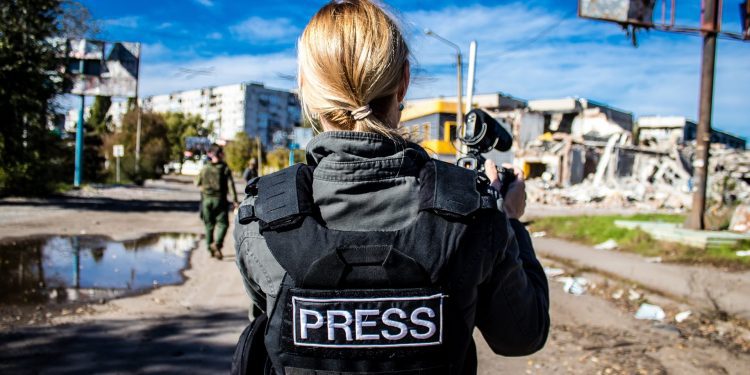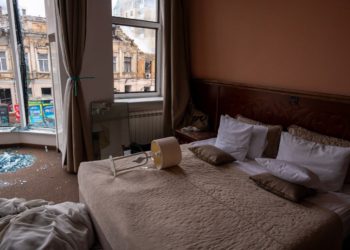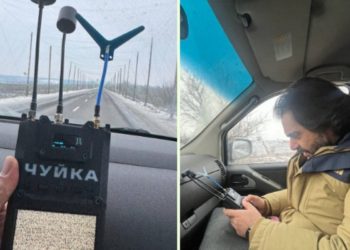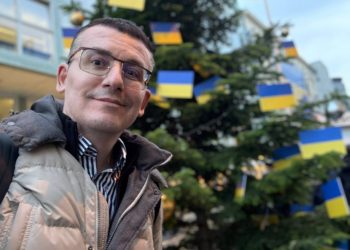1 year Mark of the War
Stories & Testimonies Series from Ukraine
In response to the war against Ukraine, UNESCO mobilized an immediate emergency response for media workers in the country.
To support Ukrainian citizens’ access to verified, conflict-sensitive information, UNESCO has been providing emergency grants to Ukrainian journalists, allowing them to continue their crucial work with editorial independence.
Through cooperation between UN agencies, the cash transfers of the first round of emergency grants to 160 media journalists have been facilitated by the World Food Programme (WFP), with the support of the International Federation for Journalists (IFJ) and the National Union for Journalists of Ukraine (NUJU).
Journalists from 24 regions of the country received this support and women journalists made up 75% of the recipients.
UNESCO and its partners in the country spoke with some of the beneficiaries, illustrating the difference this support makes on the ground.
UNESCO launches a new programme to support Ukrainian journalists
Kateryna Matko, editor-in-chief Silske Zhyttia newspaper
According to Kateryna Matko, the editor-in-chief of the local newspaper Silske Zhyttia [Rural Life] (Kirovohrad Region), the publication has had to reduce the number of pages from 8 to 4, and minimize the staff and their salaries, since the beginning of the war. However, the newspaper’s circulation did not fall. “This shows that people need a newspaper” According to her, some villages have no Internet connection, while others have blackouts, making the newspaper the only information bridge to the outside world.

Kateryna spent the aid received from UNESCO on the needs of the newspaper she runs. She was able to pay her employees and taxes and intends to purchase a charging station so that they can continue to operate in the event of a power outage.We couldn’t afford to stop the newspaper. Meanwhile, things were becoming increasingly difficult. As a result, UNESCO’s assistance was very timely.Kateryna MatkoEditor-in-chief of the local newspaper Silske Zhyttia
Nataliia Biriukova, Orbita television journalist
Nataliia Biriukova, an experienced Orbita television journalist (Pokrovsk, Donetsk Region) shoots footage every day, showing how people live and try to find something positive in the current situation.

Despite the systematic shelling of Pokrovsk and the city’s lack of water supply, she continues to live and work there. Nataliia used the UNESCO grant to address health issues that had recently arisen.It’s very difficult to travel to shoot reports and see the destroyed streets where you grew up, where you shot news about improvements for 20 years. (…) “There are now craters from explosions on the roads and destroyed houses along them (…) Every resident of our region lives in hope: they hope that “a shell will not reach” and that everything will be limited to fear. We maintain psychological balance by assisting the front, the army, and the country to work, live, and believe.Nataliia BiriukovaOrbita television journalist
Ian Dobronosov, photo correspondent of the Telegraph publication
Ian Dobronosov, a photo correspondent of the Telegraph publication, who works in many regions of Ukraine, especially on the front line.

“The support of UNESCO and other international partners to Ukraine is extremely important” says Ian Dobronosov. “Sometimes people ask me how I make a living during the war. I am not making any money. I use my savings to pay for traveling expenses and solving technical issues. I am very grateful to international financial donors who value journalism and pay attention journalists like us. I am very grateful to both UNESCO and the National Union of Journalists of Ukraine (NUJU).”I am glad that the National Union of Journalists of Ukraine (NUJU) cooperates with UNESCO. This allows identifying the people who really need help.Ian DobronosovPhoto correspondent, Telegraph publication
UNESCO is committed to continuing to support the safety of Ukrainian and international journalists and media workers inside Ukraine so that they can provide factual, conflict-sensitive, and verified information of public interest to the population, with editorial independence.
Additional emergency energy equipment to local media across the country, material support for 200 journalists to meet the urgent need for further assistance and to allow them to continue their profession, and psychological support to journalists, with a focus on women journalists are among the actions planned for 2023.
This assistance was organized in collaboration with the World Food Programme (WFP) and National Union of Journalists of Ukraine (NUJU).
This support in Ukraine was made possible thanks to the flexibility of the Multi Donor Programme (MDP), alongside the emergency response mechanisms of the Global Media Defence Fund (GMDF) and the International Programme for the Development of Communication (IPDC). These activities will be further upscaled in 2023, also thanks to a new 10 million USD project funded by Japan, which will benefit to all sectors of UNESCO.
About UNESCO
UNESCO is the United Nations Educational, Scientific and Cultural Organization. It contributes to peace and security by promoting international cooperation in education, sciences, culture, communication and information. UNESCO promotes knowledge sharing and the free flow of ideas to accelerate mutual understanding. It is the coordinator of the UN Plan of Action on the Safety of Journalists and the Issue of Impunity, which aims to create a free and safe environment for journalists and media workers, thus strengthening peace, democracy and sustainable development worldwide. UNESCO is working closely with its partner organizations in Ukraine to provide support to journalists on the ground.
The designations employed and the presentation of material throughout this publication do not imply the expression of any opinion whatsoever on the part of UNESCO concerning the legal status of any country, territory, city or area or its authorities, or concerning the delimitation of its frontiers or boundaries.
The author is responsible for the choice and the presentation of the facts contained in this publication and for the opinions expressed therein, which are not necessarily those of UNESCO and do not commit the Organization.

 THE NATIONAL UNION OF
JOURNALISTS OF UKRAINE
THE NATIONAL UNION OF
JOURNALISTS OF UKRAINE
















Discussion about this post